Something I have really been grappling with throughout our time thus far in Japan has been the extent to which agriculture can really be ‘natural.’ We started off the trip reading the book The One Straw Revolution by Masanobu Fukuoka in which he preaches “do-nothing,” organic farming as a way of life and, in many ways, a solution for what is often perceived as human conflict with the environment (in contrast to the increasingly commercially produced agriculture of his (and our) time). This simple lifestyle in combination with my first impressions of the organic, attemptedly sustainable farming practiced and preached at ARI at first had me really excited and interested me greatly as even a potential way of life to pursue. But as we dove deeper into topics of sustainability and the consequences of excessive human tampering that create the environmental atmosphere (both socially and physically) that we live in today, I realized that one of the origins of this tampering was in many ways the discovery/creation of agriculture itself. All organisms need energy to survive and are part of natural food chains that cycle this energy and infinitely keep life as a whole living despite individual death. But it seems that once humanity discovered how to organize their energy sources in an efficient manner, they became stagnant, their population grew, and thus agriculture seemingly created a further need for agriculture in order to sustain an increasingly growing human population (I would love to dive deeper into this topic and understand it further).

At this point, I also start pondering why humans developed the cognitive ability to supersede other organisms in this manner in the first place. I don’t know enough about evolution to delve too deep into that question, but it interests me greatly that somehow natural evolution is what allowed one species the power to grasp the top level of the hierarchy and in many ways abuse and stretch this placement. Just the fact that choices beyond survival can/could be made sets us apart so much and allows us to shape the planet- a world we often call “ours”- in such incredible ways. What gave humanity that ability? To take a step out of what seems to be such intertwined network of life and being?
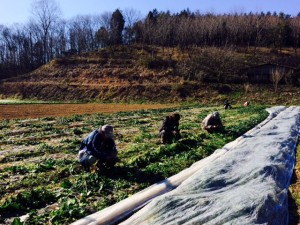
But can we take a step out? Is alienation ever really possible? From what we have so far discussed, read, and experienced, I don’t think it is. Humans, no matter how hard they try to separate themselves, are eternally entangled in the “inescapable ecologies” discussed in another one of our readings Bad Water by Robert Stolz. Our connections to and with the rest of life on earth- and earth itself- may be knotted beyond belief, but they are still attached; rather than attempting to “reconnect” with nature then, we should instead be attempting to disentangle the brutal mess we have created in our attempt to alienate, redefine, and abuse. Similarly instead of trying to, as a separate entity, be in harmony with nature, we should attempt to rediscover our placement in a holistic harmony that we are meant to be a part of- not separate from. Our attempted separation only leads to knotted dissonant threads. Our attempted strength is suicidal in its inevitable consequential weakening of the ecologies we are not only inescapably connected to, but also depend on as vital sources of life and energy.
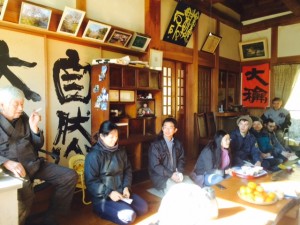
An experience that really helped tie up some loose ends (but not nearly all of them) for me on these topics of the natural-ness of farming and human resynchronization into the melodies of nature was our outing to Kinou Shi Juku (another attemptedly organic and sustainable farm in the area). The man who started this farm- Mr. Tadashi Tomatsu- has now passed it down to his daughter, but we got to meet him and hear his reasoning for starting this farm in the first place while we were there. He said that the reason he chooses this way of life is because living this very simple life of farming with nature is the closest he feels he can get to returning to living a life at one with the land. For as the artwork he created states “There is no distinction between body and soil”; we rely on it and it relies on us and if we can once again find where we belong in the complicated harmonies of this planet, we can move from dissonance created by unrealizable attempted alienation into harmonious oneness once again. I have definitely accumulated more questions than answers thus far on this trip, but I am greatful for the many ways in which the people we have met, the topics we have read about and discussed, and the experiences we have had have pushed and pulled my thoughts in multiple new ways and I cannot wait to take these new perspectives back with me to campus.
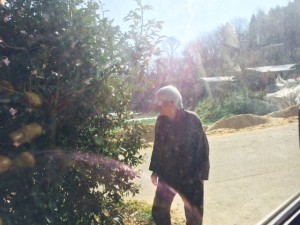
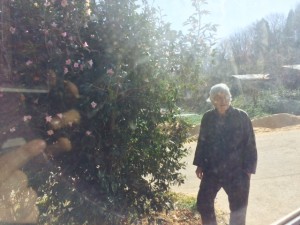
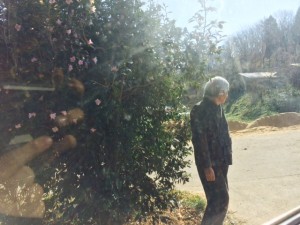

Recent Comments